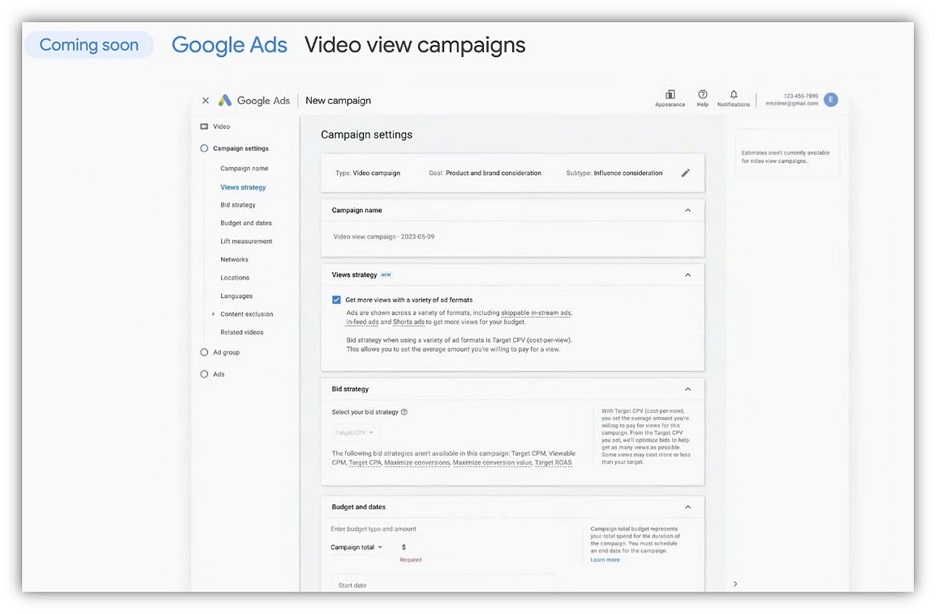AI was the name of the game at Google Marketing Live 2024, with the majority of Google’s updates and announcements centering on how AI-powered tools can empower businesses to drive better results, connect with their customers, and deliver the right message at the right time.
Google broke its presentation into three C’s: customer connection, creative, and confidence, with examples of how its new tools and features (backed by AI) can help businesses in each of those critical junctures.
So, want to know what’s coming (or what’s already arrived) as you market your business on Google? You’re in luck because we’re sharing a brief overview of the most important updates and announcements shared at Google Marketing Live 2024.
Here is the brief overview:
1. Generative AI/SGE (smart Generative Engine):
Generative AI and SGE represent improvements in AI-driven content generation. Those technologies allow organizations to create in-the-state-of-art, personalized content at scale. This can be particularly useful for generating ad copy, product descriptions, or even website content that resonates with individual users.
2. Video View Campaigns:
Video view campaigns are designed to help advertisers maximize the visibility of their video content. These campaigns aim to increase the number of views and engagements on video ads, which is important for brand exposure and engagement.
3. Demand Gen Campaigns (demand generation):
Demand generation campaigns focus on creating interest and demand for products or services. These campaigns aim to attract potential customers and nurture them through the income funnel, ultimately driving conversions.
4. Broad match brand control:
Broad match brand control is a feature that gives advertisers more control over how their brand terms are matched in Google ads. This allows corporations to better manage their brand’s online presence and reputation.
5.Performance Max high-value New customer Acquisition:
Performance Max is an ad campaign type that optimizes for conversions across Google’s networks. The focus on high-fee new customer acquisition means that advertisers can target and attract new customers who are much more likely to generate giant revenue
6. Conversational experience in Google ads:
This feature likely pertains to enhanced communication and interactivity within Google ads. it may involve chatbots, messaging, or other conversational tools to engage with customers directly through ads.
7. Automatically Created performance Max assets using Generative AI:
This feature suggests that AI will play a vast role in developing ad assets for performance Max campaigns. it can include automatically producing ad creatives, headlines, and descriptions based on campaign goals and user records.
8. Product Studio:
Product Studio could be a new tool or platform designed to assist businesses manage and optimize their product listings and promotions across various Google platforms, including Google purchasing.
9. Google Merchant center next:
Google service provider center is a platform for managing product listings in Google purchasing and different services. “Google service provider center next” suggests an evolution or update to this platform, possibly with new features and capabilities.
10. GA4 audience Builder:
Google Analytics 4 (GA4) is the latest version of Google’s analytics platform. The “audience Builder” feature likely enhances the ability to create and segment audiences based on user behavior, allowing for more targeted advertising efforts.
11. Performance Max improved search term Insights:
Performance Max campaigns are designed for automation and optimization. improved search term insights likely means more specific and actionable data about the hunt terms that cause ads, supporting advertisers refine their targeting and optimization strategies.
Clearly, Google’s approach to using AI to power its tools, products, and experiences revolves around the three Cs: Customer Connection, Creative, and Confidence. Here is a extra specified clarification of each:
AI algorithms can analyze user data to suggest products, services, or content that are likely to interest a particular user. This can be seen in YouTube’s video recommendations and Google shopping. Google wants to create a seamless experience for users across its products. AI can assist in tracking user interactions and preferences across platforms, allowing advertisers to engage with potential customers more efficiently.
innovative:
Content Creators:
AI-powered tools can assist advertisers and content creators generate with-the -state-of-art, personalized creative assets more efficiently. For example, AI can assist in growing responsive ads that adapt to extraordinary structures and devices.
Advertisers can use AI to create ad versions that are more likely to resonate with specific audience segments. This could include dynamic ad content generation based on user preferences or behaviors.
Google’s AI can assist optimize creative elements by running A/B tests and analyzing performance data to identify which creatives are most effective.
Confidence:
Google’s AI tools offer insights into how campaigns are performing. They can provide real-time data and analytics, allowing advertisers to make data-driven decisions and adjust their strategies as needed.
Google is devoted to ensuring user privacy while offering advertisers with valuable facts. This involves using AI to aggregate and analyze consumer information in a manner that doesn’t compromise character privacy. Techniques like federated learning and on-device processing are used to protect user data.
AI can help detect and mitigate issues such as ad fraud and inappropriate content, enhancing confidence in the integrity of advertising ecosystems.
Overall, Google is harnessing the power of AI to enhance consumer engagement, streamline creative processes, and provide advertisers with more confidence in their campaigns. At the same time, they are committed to respecting user privacy and maintaining the trust of each user and advertisers in their platforms.
What these Google Marketing Live updates mean for your business
What do these Google Marketing Live updates all have in common? They all include Google’s AI technology! So, if you haven’t embraced AI in marketing yet, now is the time to do so. As Vidhya Srinivasan, VP and GM for Google Ads, said:
“You’re not competing with AI, you’re competing with other marketers using AI.”
Google suggests that a big part of succeeding with AI is enabling the proper foundational setup across Google platforms, using their AI-powered campaign tools and features, and being prepared to experiment. Google even shared an AI essentials checklist to help businesses handle these updates with ease.

